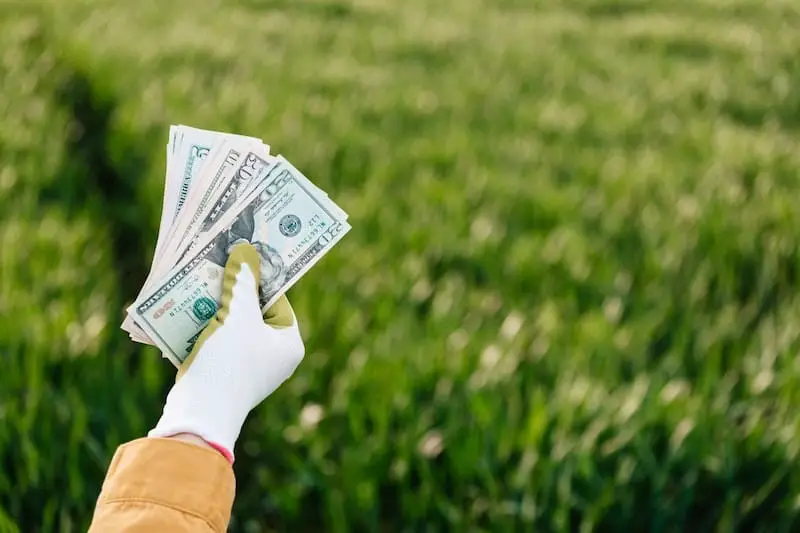Depending on where and how big is your land you can make money by planting a flower field, building a campsite, a livestock farm, an orchard or vineyard, a horse stable, or placing solar collectors to produce and sell energy.
Land is one of the oldest commodities and used to be one of the primary ways to invest your money long ago.
Today, we’re spoiled by having so many investment options: stocks, bonds, mutual funds, cryptocurrency, real estate; the list goes on almost indefinitely.
But if you want to stick to age-old practices and purchase land, or already have land on hand, there’s a way to make a good profit out of it.
Our ancestors used the land as a vacant spot and a place to raise livestock.
Today we’re a bit craftier and have Airbnb’s, Instagramable flower fields, can produce solar energy, create glamping spots, etc.
Depending on the type of land, location, and size, you can make a good passive income and even sustain yourself! But beware that the beginning requires a lot of effort.
Is owning land a good investment?
Buying land just for its sake and never doing anything on it is not a good investment.
There’s little chance you’ll make a good profit by reselling it, and you might have to wait more than a decade to get a reasonable price.
Investing in land in a popular spot or buying land for a profitable idea is a good investment.
So, in short, if you have some extra money you want to invest and generate passive income without investing extra money, buying land is not for you.
But if you’re looking for a new challenge and need a piece of land to grow your business on, then purchasing land is a wise investment.
Pros of buying land
There’s much less competition in the land investment section than in the developed real estate section.
A piece of land comes with enormous flexibility; as long as you respect local zoning laws, you can use the land however you want!
Property tax, insurance, and maintenance costs are significantly lower for land rather than a house.
The amount of clear undeveloped land is limited, and if the demand in your specific area is not great at the moment, there’s always potential to grow in the future.
Cons of buying land
Land is an illiquid asset, and while it adds to your net worth, it’s not easy to liquidate or turn into money once the need arises.
The trading costs are much higher than selling real estate, for example.
The value of a piece of land is determined by what you can do with it. You should be aware of the type of land you’re buying.
The zoning restrictions and laws clearly state how you can use the piece of land you’ve purchased.
There’s a specific type of land for each purpose.
There’s residential and commercial development land, recreational land, row crop, livestock-raising, and vegetable farmland, as well as timberland, orchards, and vineyards.
The downpayment on developed land starts at 15%, but the downpayment on raw, undeveloped land goes up to 50% as it comes with a higher risk for the lender.
Price of land in the US
The average price of land intended for houses and farming in the US is $3,160 per acre.
An acre of cropland costs $4,100, while pasture land is only $1,400 per acre.
The national average means there are places like Mississippi with a price of $10,000 per acre and some states with free land for transplants.
In 2019, Lincoln, Plainville, Osborne, Wilson, Mankato and Marquette, rural towns in Kansas offered free land.
The only catch was you had to complete all construction in 1 to 4,5 years.
How to make money off land
Here are a few ways to make money off land you already own or some ideas you can use for your future land.
1. Farming
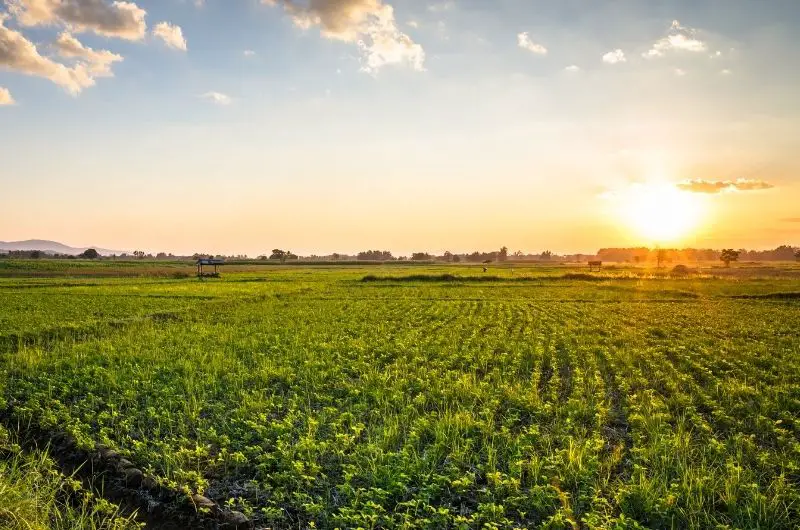
Farming is an obvious option, and many reach for it because farming can cost as little as $1,000.
For example, a goat can cost you between $250 and $300, while chickens are $3 to $30.
Free-range eggs, however, are expensive, so farming chickens is a good ROI.
Rabbits, honeybees, and ducks are also affordable.
2. Plant a vineyard or orchard
You can expect to pay $10 to $20 per single tree.
Orchards can have between 5 and 500 trees, depending on your goals. In 2016 orchard owners reported a profit of $2,324 per acre.
But you can always get creative and transform the plain fruit into preserves, dehydrated or freeze-dried snacks to earn more.
3. Plant flowers
To grow a flower field, you need a piece of land with good draining soil and excellent sun exposure.
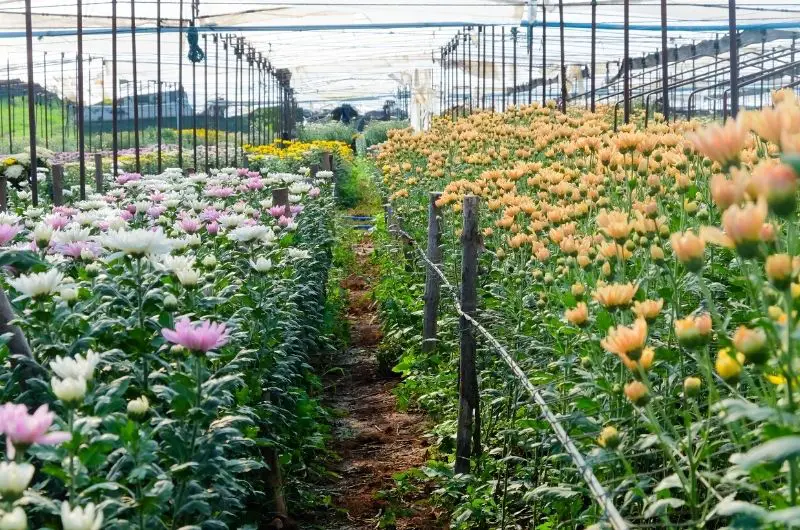
But don’t stop at selling cut flowers.
Think outside the box and set up an instagramable flower field, just like the tulip fields in Amsterdam!
4. Rent land as storage space
With more and more Americans setting up to like the van life for a few months a year, the number of RVs grows.
But not all of them have a spot to park them when not on the road. Here’s your chance to profit.
If you own a vast piece of land, you can separate a section, level it, and install some security cameras.
Then you can offer it as a parking spot or storage spot for vans, RVs, and other types of trailers.
5. Rent land for community gardening
Owning land in a fairly urban area is an excellent chance to set it up for community gardening.
If you’re not familiar, community gardens are one large piece of land where you can rent a garden plot and plant some berries, vegetables, flowers, or whatever you like.
According to research conducted by the University of Columbia, starting a community garden costs $7,000 to $10,000.
Depending on the size, renting a garden plot costs $20 to $250.
6. Build a campground
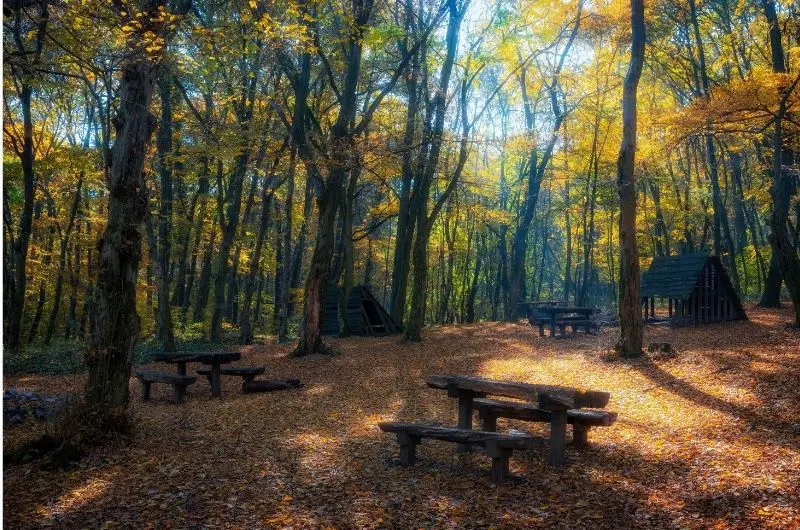
Building an RV park or campground with glamping tents can cost you between $15,000 and $50,000.
It depends on the amenities you want to install and the price of city permissions.
Camping is becoming more popular every year; in 2018, 1.4 million households camped for the first time!
7. Horse stable
The minimum investment for a horse stable is $25,000. The costs get exponentially higher as you add more stables.
You also have to plan on hiring staff to keep the stables clean and feed the horses.
However, putting a horse in a stable costs $400 to $2,500 a month without any added services.
So if your stable is near a metropolitan area, you’re looking at a minimum of $1,000 monthly charge per horse.
8. Build a pet hotel
Around 90.5 million households in the US own some type of pet. In 2020, Americans spent $103.6 billion on their pets.
And a large number of them travel for work or leisure. Unfortunately, not all pets can fly, so owners are always looking for a nice doggy daycare or pet hotel.
The boarding cost ranges from $40 to $80 a day, depending on pet type and size.
The initial business costs, insurance, and permits will cost you at least $45,000. This doesn’t include building the facility. But it’s a profitable business when operated with love.
9. Set up solar collectors
Selling electricity will never be not profitable.
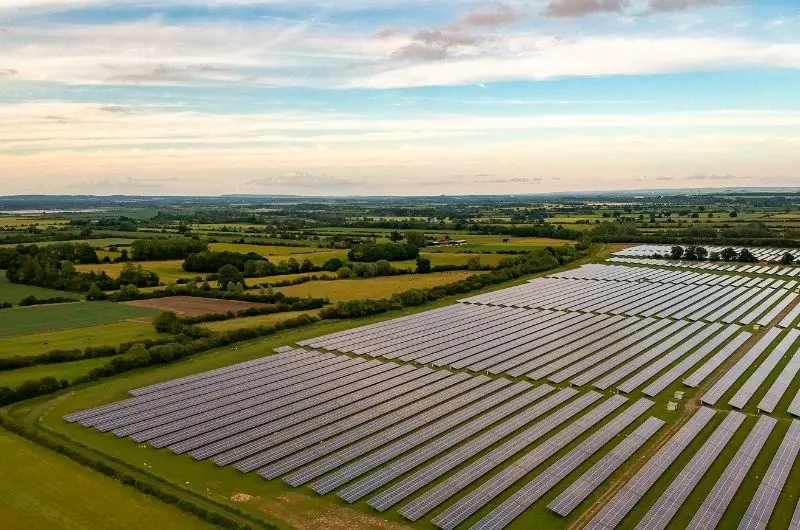
You’ve probably heard how people who have solar-powered homes sell some of the energy they don’t use back to the utility company. Well, you can do that too!
If the land you own is fully exposed to the sun and the majority of days in your state throughout the year are sunny, you will generate more power than you can use.
You can sell it back to the utility company or store it there to use on cloudy days.
FAQs
Is owning land profitable?
Land is always profitable, but it’s a long-term investment. Unlike passive income streams, this one requires some effort on your hand to make it profitable. Plain land value is also speculative, so it can grow or decrease with time.
What is the easiest farm to start?
Bee farms and herb farms are the easiest to start, followed by chicken farms and microgreens farming.
Is flipping land profitable?
Land flipping can be profitable, but it can also be highly unethical and fraudulent.
Land flipping is buying a piece of land that no one wants and flipping it to sell at or above market value.
However, the flip can hide important and dangerous things, like toxic soil or legal issues. As a result, lenders are reluctant to approve a loan regarding flipped land.
Bottom line
Making money off land is one of the easiest business practices. Our ancestors built farms and homes on their land and made money selling animals, vegetables, fruit, and crops.
You can still make money off land but in slightly more modern ways.
Whatever you decide to go with must be close to your heart, as investing in land is a great expense, and you’d need a few years to get a good return on investment.
Do you own any land? Would you consider buying undeveloped land as an investment?

